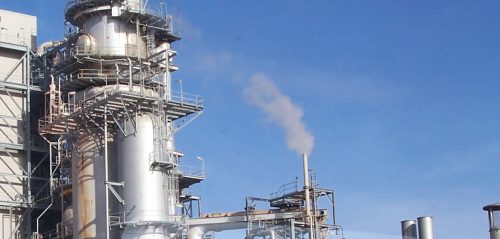- Oh man. This is hilarious. Although the old-media articles about it I’ve read are a bit … naff.
- Speaking of old media, I guess I’m two weeks behind on The West Australian releasing the fruits of their deal with Yahoo!, who despite their financial doldrums do actually know how to build a website. (Apart from management, their staff really seem to know their stuff!) Anyway, the site is now quite respectable (though it lags other papers with recent redesigns), and is interestingly timed amidst what seems to be a new round of hand-wringing by newspaper owners.
- And speaking of amusing things, lol at the New South Wales government. Does the health minister fancy himself governor of South Carolina or something?

Places like Armadale, Thornlie, Clarkson, Mandurah … and Clarkson
Comparing some recent global warming policies
There’s been quite the flurry of stories about global warming in the news of late.
It reached a peak with last week’s report from the PM’s emissions trading task force, a document that doesn’t embrace science so much as hold it at bay except when absolutely needed. The report does at least acknowledge that the uncertainty of not planning for global warming delays investment in some areas, and therefore argues that Australia shouldn’t wait for a global system to be decided. But while it suggests committing immediately to an emissions cap, it doesn’t say what that should be, and Howard’s not made any suggestions (though he is already misquoting it).
Aside from the fact that the proposed cap-and-trade model starts very slowly (with free licences to pollute for “existing businesses identified as likely to suffer a disproportionate loss”), the report also suggests it should be one policy to rule them all — that “less efficient government policies need to be phased out”.
In this light, consider two State policies announced on Sunday against the climate change tokenism of the WA government: NSW shall be buying clean-fuel buses (done here years ago), while Queensland will spend $300 million on research and set a measly 10% target for renewable energy (although they will commit to cleaning up government buildings). Neither is all that great, but they don’t deserve to be sacrificed; Queensland’s policy at least puts some effort into much-needed research.
And at least it’s better than the Chinese government’s plan for climate change, an English version of which is here (hat-tip to David Reevely, who has an excellent overview). It basically repeats the subtext that can be seen in the Australian report (“waaah! it’ll hurt the economy!”) and focusses on things like improving efficiency and imposing regulations on manufacturers (not that I believe them; consider how easy it is to get local officials to look away). But of course, these are all things that need to be done anyway.
Australia hasn’t ratified Kyoto but has kept to target of 108% of 1990 emissions, while the Chinese failed on the self-imposed goal of 4% reduction in energy use divided by GDP (though that has decreased in the longer term). But even if they get to Western levels of efficiency, they’ll still be ramping up the number of polluting industrial facilities, which is why they should be embracing low-emissions technology now in areas like steelmaking and electricity generation. Indeed, theirs is a situation where nuclear power seems a decent solution: they need lots of energy, and can’t wait for solar panels to become cheap, but nobody wants them building hundreds more coal-fired generators that’ll pollute for decades.
And as an aside, given the concern in some quarters about WA’s boom coming to an end: I do believe that if the State government were to lift its silly ban, selling uranium to China would keep us prosperous for quite some time …




 Atom feed
Atom feed

